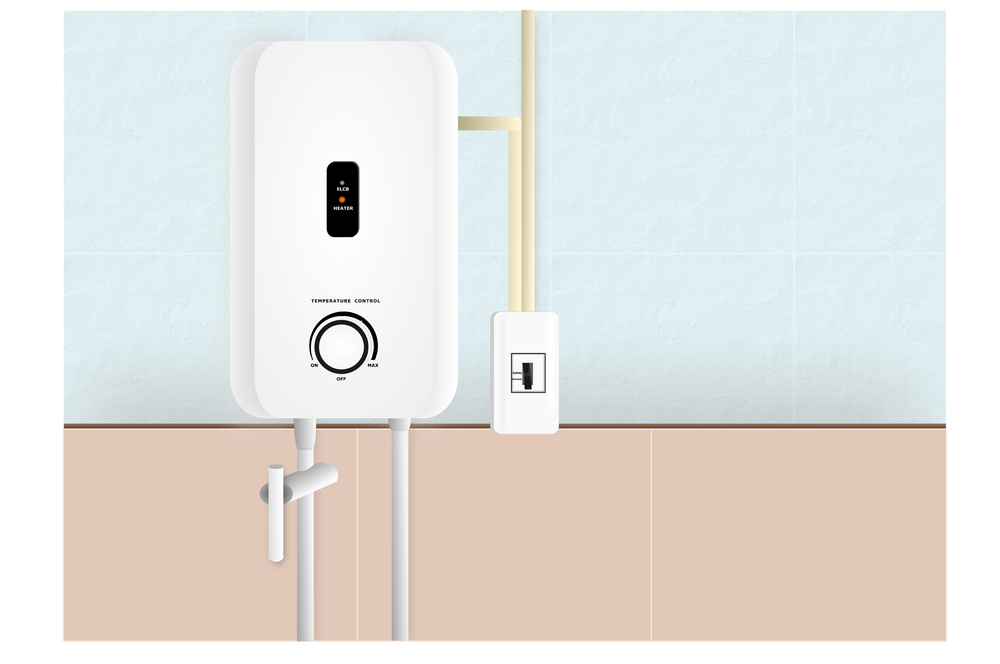Few things are as relaxing after a long day as a hot shower. Water heaters make not only the hot water for showers available, but they also provide hot water to the rest of your home’s appliances. Maybe your water heater is old, and rather than worrying about water heater repairs, you are looking for a replacement. Or perhaps you are looking to upgrade to something more efficient than your current model.
But how do you find the right water heater? Before you spend time researching “water heater installation” or searching for “plumbers near me,” consider this guidance from the experts at Craftsman Plumbing.
According to the Department of Energy, almost 20% of the average household’s expenditures come from heating hot water. Choosing a cost-effective model is important, but you should also consider type, size, fuel, efficiency, and whether to go tank or tankless.
Tank Water Heaters
Traditional tank water heaters are large cylinders that hold a reservoir of heated water that is always hot and ready to use when needed. However, to stay hot, the water in the tank needs to be reheated periodically. Although the capacity and size of tanked water heaters can vary, most are between 40 and 60 gallons, and most are about 60” tall and 24” wide.
Tank heaters in most homes are found in the basement, laundry room, or a designated water heater closet. Tanked water heaters cost less than tankless water heaters initially, but tankless water heaters use less energy in the long run.
Tankless Water Heaters
Tankless water heaters (or “on-demand” water heaters) heat water only when hot water is required, such as when you turn on the tap. Unlike the tank style of water heaters, tankless heaters do not have a large reservoir of water that must be kept heated at a designated temperature.
Instead, tankless water heaters are compact systems that heat the water as it is required. Tankless heaters are generally smaller than tanked (about 28” long, 20” wide, 10” deep on average).
There are some advantages to tankless water heaters:
Energy Efficiency
Tankless water heaters are more energy-efficient (and thus cost-efficient) than tank heaters. How so? Well, since they don’t need to warm a big reservoir of water constantly, they use less power.
Long Lifespan
A tanked heater lasts between 10 and 13 years on average. On the other hand, a tankless heater can last up to 20 years. All that energy efficiency really takes the burden off tankless systems!
Size Efficiency
Tankless water heaters are much smaller and take up less space than tank-based systems. Most people install their tankless water heaters under the sink, so it’s entirely out of the way.
Because of their advantages, many people find they prefer tankless water heaters.
Fuel Type
The fuel type you choose to power your water heater will affect the circumstances of your water heater installation, such as how and where it’s installed. Usually, people choose whatever fuel type is available in their area.
Electric
While these water heaters require more energy in comparison to other types, the installation is easy. Also, they don’t need any special venting.
Oil
Though there are fewer models to choose from, oil-water heaters heat water the fastest of all types.
Liquid Propane
Although they require a storage tank and regular fuel deliveries, there is a large selection of these water heaters. They require venting via a chimney or wall.
Natural Gas
These units produce hot water quickly. Like propane water heaters, they come in a large selection, and they too require venting.
If you’re interested in eco-friendly fueling, there are also several kinds of solar options available.
Direct-Fired or Indirect-Fired Hot Water Heaters
Tank-based and tankless heaters are either direct-fired or indirect-fired. Those terms refer to how the heat is produced and applied.
Direct-Fired
Direct-fired means that the tank water is heated directly by a flame. A combustion chamber under the storage tank burns the fuel, using it to heat the water in the tank. These units work well in homes with warm air furnaces.
Indirect-Fired
These units draw water from a furnace or boiler and then heat it through heat exchange in a storage tank. Because the tank stores the energy, your furnace has to turn on and run less often, saving money and power.
Call the Pros!
When it comes to water heater installation, you may feel tempted to tackle the job yourself. However, we recommend that you hire a professional who has experience installing these systems. If you install your water heater incorrectly, you could put your home at risk of floods, fires, and gas leaks. So skip the DIY attempt and give Craftsman Plumbing a call!

